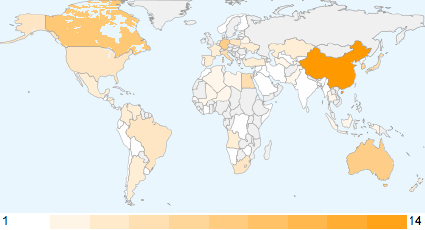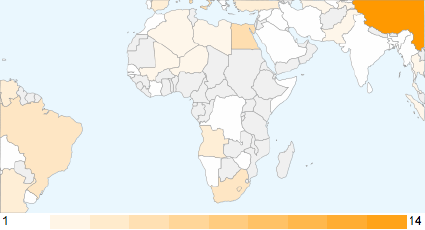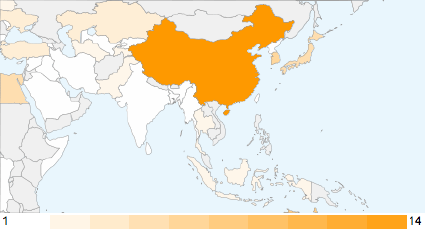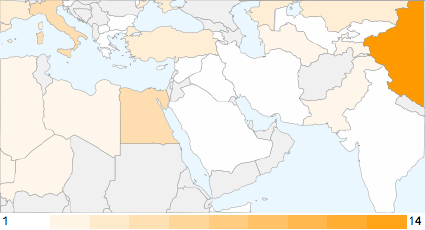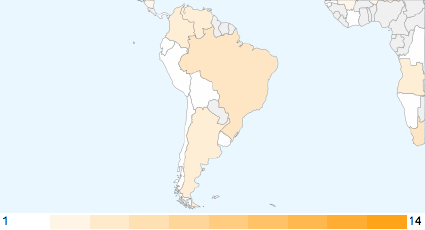Stories from the Back of the Pack
Brazilian cyclist Luciano Pagliarini was suffering from kidney stones.
British diver Blake Aldridge blamed his synchronized diving partner, 14-year-old Tom Daley, for their last-place finish after Daley "popped off" on Aldridge for talking to his mother on his cellphone during the competition.
South African kayaker Sibonso Cele capsized his canoe and missed a gate in his first run, but put in a clean run the second time around.
Hiroshi Hoketsu's horse was apparently discombobulated by a passing airplane.
Italian cyclist Roberto Chiappa was relegated for elbowing Japan's Kiyofumi Nagai during the race.
Homa Hosseini, last in women's single sculls, is one of several groundbreaking female athletes from Iran.
Colin Jenkins acted as fellow Canadian (and eventual silver medallist) Simon Whitfield's "bodyguard" in the men's triathlon.
If you haven't heard any of these stories, I'm not surprised. Last-place finishers only make the news in their home countries, their hometown papers expressing their sympathy while their national media whines about lost medals. Sometimes not even then.
The only times a last-place finish generates international attention is when it's relevant to a national team's chances ("We would have lost except for ...") or truly spectacular in its own right. Usually that's the kind of media coverage no one wants.
It's part of a larger problem: media coverage can be so overwhelmingly focused on the home team that the big picture is missed. Events in which your country has no chance are ignored. Gold medallists from other countries are only shown to explain why your country's competitor came in 12th (this actually happened with the CBC's coverage of the men's hammer throw). And you'll almost never hear someone else's anthem played at the podium.
I was surprised to spend so much time blogging about the ugly nationalistic side of the Olympics in this round of DFL. The 2008 version of this blog has been the angry DFL, wherein I fulminate against the media, national Olympic committees, the IOC, and the general public for their obsession with medals and their tendency to blame athletes for failing to bring back the shiny knick-knacks and making their whole country look bad.
Each edition of DFL has been different: the 2004 version was the funny DFL, in which I navigated a narrow course between cracking wise and not doing so at the athletes' expense; the 2006 version was the earnest DFL, where I focused on injury, grit and character, and how hard it was to get to the Games. By the end of this run, I'm running out of things to say. Apart from reporting the results, I find myself more or less filling in the corners.
And fewer of you are reading it each time. Only half as many of you have visited this time around as you did during the 2006 Torino Games, and one-tenth as many as during the 2004 Athens Games. I'm not bothered; I ought to have done something to, you know, promote this site if I were. The fact that the media ignored DFL this time around -- which made my life a little less crazy, despite some health problems I've had during this run -- means two things: one, my point has been made -- though if the case of Stany the Stingray is any indication, the media has largely ignored that point. And two, my 15 minutes are up. I'm content.
Labels: analysis, beijing 2008, media

